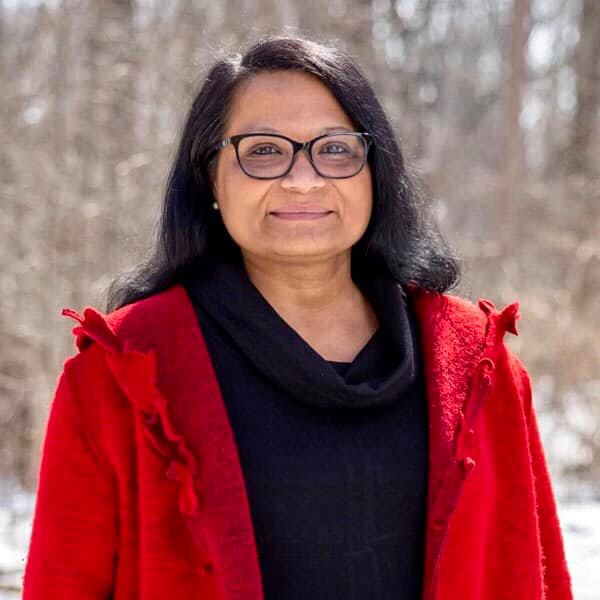Written by Elaine Coburn, Director of the Centre for Feminist Research, York University

Bipasha Baruah (York University PhD 2005) is Professor and Canada Research Chair (Tier 2) in Global Women’s Issues. She is also a member of the Royal Society of Canada’s College of New Scholars, Artists and Scientists. Professor Baruah specializes in interdisciplinary research at the intersections of gender, economy, environment, and development; gender and work; and social, political, and economic inequality. Her current research aims to understand how to ensure that a global low-carbon economy will be more gender-equitable and socially just than its fossil-fuel-based predecessor. She has published one book, Women and Property in Urban India, (University of British Columbia Press 2010) and more than 100 peer-reviewed articles, book chapters, encyclopedia entries, working papers, policy briefs and professional reports, in journals like World Development, Feminist Economics, Development in Practice, Water Policy, and Labor Studies. Her work can be found here.
In her presentation at the Centre for Feminist Research at York University, “Gender Equality In Low Carbon Economies: Continuities, Contradiction, Disruptions”, York University alumni and Canada Research Chair Bipasha Baruah observes that, “Globally, women represent only 22 per cent of the oil and gas industry and 32 per cent of the renewable energy workforce. Women are particularly underrepresented in the energy sector in jobs that require science, technology, engineering and math (STEM) training (28 per cent) compared to non-STEM technical jobs (35 per cent) and administrative positions (45 per cent).” For Baruah, this underrepresentation is not only a problem but an opportunity, as nations around the world are confronted with the urgent need to re-orient the energy sector for environmental sustainability. In developed, emerging and developing economies, the energy sector can be transformed to support more sustainable energy -- and better jobs and more equity for women.
This is true in the developed nations, like Canada, where skill shortages in the renewable energy sector are a challenge but, Professor Baruah emphasizes, also an opportunity, “to train, recruit and promote women, Indigenous peoples, new immigrants, workers with disabilities, and other groups that have historically been marginalized in the energy sector.” This requires support for women to obtain degrees and diplomas in the better-paid science and technology fields, for instance, but also more flexibility for women who take maternity and parental leave to return to work and mandatory quotas for women in upper management and administrative positions.
Developing nations face their own challenges in the energy transition, but some offer useful models for ways forward for the rest of the world. In a chapter with Rabia Ferroukhi and Celia García-Baños López published in 2021, “Global Trends in Women’s Employment in Renewable Energy,” Professor Baruah and her colleagues point to Zambia’s gender-transformative approach as one helpful example. “Zambia’s National Energy Policy identifies measures to mainstream gender considerations in all energy access programs” they observe, “and highlights the role of women not only as beneficiaries but as also active energy providers and entrepreneurs within the sector.” They conclude that “This is a good example of a[n]…approach that views women not simply as primary end users and beneficiaries, but as actors in the design and delivery of energy solutions.”
If the energy transition to sustainable industries is necessary and urgent, Professor Baruah’s work is a reminder that there is hope in this transition for creating a more gender-just world. This will require women’s active role as decision-makers, not just in the energy sector but in the social, political and economic structures that now reproduce inequities. They can and must be transformed to bring about both environmental sustainability and gender equity in the critical years ahead.
